Editorial
Lessons From PDP Convention
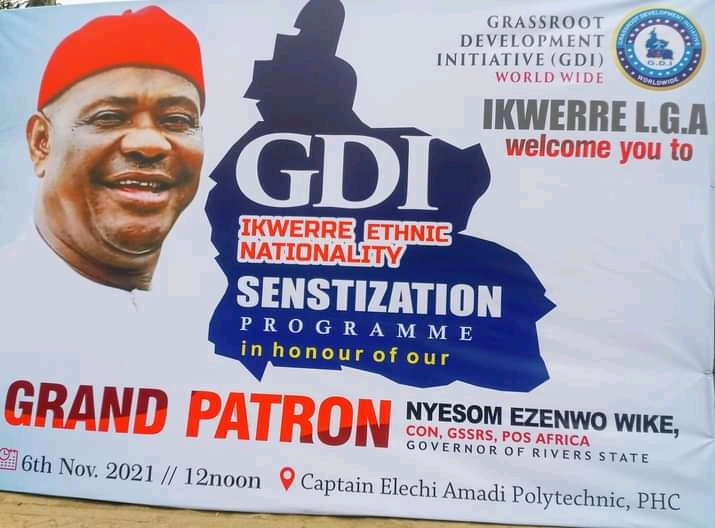
After weeks of uncertainty and apprehension, the coast became clear for Nigeria’s leading opposition, the Peoples Democratic Party (PDP) to hold its national convention on October 30 and 31,2021. The Court of Appeal had a day before the event dismissed a suit filed by the then embattled National Chairman of the party, Uche Secondus, challenging his suspension months ago. The court likewise declined to halt the conduct of the convention.
Secondus had asked the appellate court to nullify his suspension, indicating that Section 59 (3) of the PDP Constitution affirmed that the ward or the state executive committee of any state has no authority to suspend any national officer of the party. He repeatedly requested that he be obliged to conclude his tenure on December 9, 2021, having been elected for a four-year term.
He also asked the court to set aside the orders of the Rivers and Cross River High Courts, which had earlier restrained him from parading himself as the national chairman. But a three-member panel of justices of the Appeal Court headed by Haruna Tsammani said it found no merit in Secondus’ appeal, maintaining that he renounced his position since he did not challenge his removal at ward and local government levels.
Amidst its nagging legal conundrums, the PDP headquarters, until recently, was divided, with some members calling for the outright exit of the embattled chairman while others backed him to lead the party into the convention. Undoubtedly, some party organs were split over Secondus’ fate.
With the legal hurdle cleared, not fewer than 3,600 delegates of the party assembled at the Eagle Square in Abuja to elect new members into the National Working Committee (NWC). Before the beginning of the convention, the Chairman of the National Convention Organising Committee, Governor Ahmadu Fintiri of Adamawa State, had blustered that the opposition party was bracing for the occasion and promised that it would be the best-organised convention in the country.
Indeed, the convention was hitch-free and memorable for the PDP, as all or most of the officers emerged via consensus. Consensus is part of the democratic process and we expect the opposition party to use the new officers who emerged through the process to stabilise the party. The new leadership will assume duties on December 9 to enable the outgoing NWC members to conclude their four-year tenure, which began on December 9, 2017.
The convention was a display of intrigues and power play, which saw the governors in the party growing up as an effective team against the veterans who have been calling the shots in the past. Obvious from the outcome of the convention is that governors now have unrestricted domination of the party. The event was again a pathway for the presidential aspirants to proclaim their plans, as they all displayed posters and banners to let the members know that they were coming out for the primaries of the party.
The machinery put up by the elders and presidential hopefuls, like the erstwhile Vice President Atiku Abubakar; former Governor of Jigawa State, Sule Lamido; former Senate President Bukola Saraki and others, to make Oyinlola and Ciroma emerge, failed as the governors had their way. Atiku, Saraki, Lamido and others had wanted Ciroma and Oyinlola to diminish the prevailing influence of the governors.
Though the October PDP national convention has come and gone, there are many lessons it demonstrates. First, we must applaud the PDP for holding a rancour-free convention that saw 19 of the 21 available positions won by consensus. That three of the candidates persuaded to step down for a favoured candidate by the powerful governors refused to do so, helped to legitimise the consensus arrangement, as it suggested that it was arrived at through persuasions and negotiations and not through fiat. This is recommended as a standard for political parties in Nigeria.
Second, despite all the pre-convention fears and nervousness stemming from the grim effort of Secondus to scurry the exercise, the main opposition party stood united and came out of Eagle Square unscathed. This has entrenched it in a position to salvage Nigeria from the maladministration of the All Progressives Congress (APC) government. This is again illuminating.
A further lesson to pick up from the convention is the crisis management mechanism of the PDP, which turned out to be more efficient than those of other political parties. The dominant opposition party has always overcome its challenges because perhaps the party has the most sophisticated people. For crushing the leadership crisis which would have blighted the last convention, the former ruling party has confirmed to Nigerians that if trusted again, it will do even better than before.
As the PDP basks in the splendour of a magnificent exercise, it has become indeed more sanguine to put the APC on notice that it is coming for its positions in 2023. This could be a manifestation that the key opposition party is fully back on stream. With a successful convention, the PDP may have challenged the APC with 92 chairmen in 36 state chapters to accomplish a comparable performance in their elusive convention.
Given the manner the opposition party handled its recent national convention and leadership crisis, not a few watchers of the nation’s democracy believe it has the potential to put up an excellent battle in the 2023 elections. However, while the hurdle of its leadership situation may have so far been managed from imploding by its governors, the challenge of holding the centre until the next general elections and wooing back its key players lost to the APC lately remains ambiguous.
Editorial
Learning From Kenya’s Protests
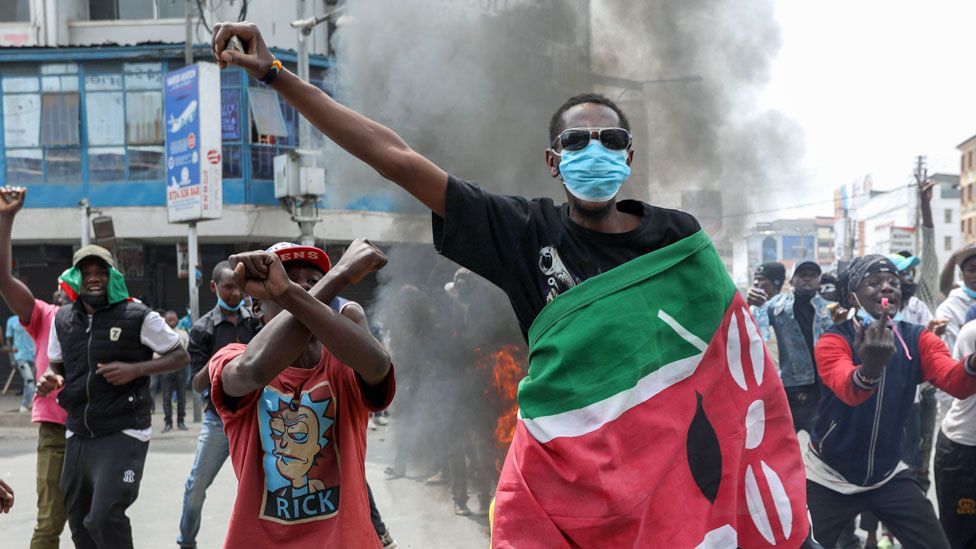
In an effort to consolidate the fiscal framework and strengthen Kenya’s economy, President William Ruto introduced a controversial bill laden with punitive taxes. This bill targets essential commodities, inflating the cost of living through increased fuel prices, imposing additional duties on exports, and controversially taxing sanitary pads, a move that is antithetical to gender equity. This legislative measure, intended as an economic panacea, instead thrusts the dagger deeper into the vitals of an economy already reeling from decadent living standards and systemic inequality.
The incremental taxes included in the bill are in line with Keynesian economic principles, where government intervention is required to regulate economic activity. However, such intervention is intended to be facilitative, not oppressive. In the case of Kenya, the controversial taxes would have reverberated through the socioeconomic strata, exacerbating unemployment, increasing inflation, and squeezing the already meagre incomes of the working class.
In the face of these oppressive measures, the streets have become a place where Kenyans are strongly protesting against the oppressive actions of the government. The youth, who represent the future of the country, are passionately exercising their democratic right to protest against the injustice they face. This is not just a reaction to economic troubles, but a powerful statement of their fundamental right to live with dignity and free from poverty.
Following weeks of peaceful demonstrations against the proposed legislation, protesters rampaged through the parliament in Nairobi. Subsequently, Ruto authorised the deployment of both police and military forces to suppress the unrest. Regrettably, it has been reported that 13 protesters were killed and many others injured by the police. Such excessive force against civilians is completely unjustifiable. Rather than engaging in finger-pointing, the security officials responsible should face appropriate sanctions.
In 2022, the Ruto’s administration emerged victorious in the general elections in Kenya, coming into power with a commitment to enhance the living standards of the underprivileged and improve the overall conditions of millions of citizens. Notwithstanding the initial promises made during the election campaigns, the government faced the stark challenges of limited financial resources, considerable debts, and the consequent inability to promptly execute its promised agenda.
Undoubtedly, the sombre economic conditions compelled the government to implement the financial bill last year, introducing a housing tax and elevating the top personal income tax rate. This action incited dissatisfaction among substantial portions of the population, leading to public displays of outrage, street demonstrations, and in some cases, legal challenges against the government’s policies.
This bill that caused a lot of public demonstrations and unrest may suggest that Kenya’s political system is not properly representing and including all groups in society. This also raises questions about the role of parliament in making sure proposed laws are thoroughly discussed and debated, to prevent protests from turning violent. However, attacking the seat of legislative power does not help the cause of protestations. Instead, it undermines the very structures that allow people to participate in the political process and seek change.
Despite the withdrawal of the bill by Ruto and his accusation towards security forces for inaccurate intelligence, the protests have continued without pause. This situation highlights the lack of genuine democratic principles in Africa. The crisis is primarily related to the economy, as the government, with a GDP of $113.4 billion and a population of 54.03 million, has acknowledged being in debt and facing financial constraints. To address its $78 billion debt, the government contemplated raising taxes.
The government said the country would have a $31.1 billion budget deficit if it cancelled the planned tax increase. This is made worse by the International Monetary Fund’s (IMF) recommendation that the country should expand the number of people and businesses that pay taxes; improve how well people and businesses pay their taxes and have a stricter financial policy to reduce the country’s debt problems. Similar to numerous African nations, Kenya is closely connected to the IMF.
Regrettably, many African leaders exhibit poor management of their nation’s economies, resulting in appalling hardships for the populace. The citizens are left to bear the consequences of their irresponsible handling of both domestic and international loans. It is necessary that African citizens exercise their voting power to remove ineffective and incompetent governments from office.
Nigeria has faced challenges due to past IMF advisories, like the Structural Adjustment Programme (SAP) in the 1990s. The actions taken based on IMF recommendations, such as removal of petrol subsidy and floating of the naira, have harmed the economy and led to negative impacts like job losses and poverty. African leaders should give priority to implementing locally-developed policies to drive economic growth rather than relying on external financial agencies like the IMF and World Bank.
Regardless of President Ruto’s concession, some protesters still insist on continuing demonstrations until the government collapses. This would be unwise as it could lead to a disproportionate use of force, escalating tensions and potential fatalities. Protesters should avoid creating conditions for anti-democratic forces to disrupt the democratic system that allows citizens to peacefully demonstrate. In a democratic society, political change can be sought through the ballot box in the next elections.
Editorial
CBN And Nigeria’s Cash Crunch

Nigerians have, again, been thrust into desperation as they grapple with cash shortage that has cast a dark shadow over their daily lives. Months after the Supreme Court’s ruling permitting the coexistence of the old and new naira notes, the crisis persists, leaving countless individuals struggling to secure basic necessities.
The scarcity of naira notes has partially crippled commerce throughout the country, especially in the informal sector. Businesses are incapacitated, unable to complete transactions efficiently, resulting in a slowdown of economic activities. Some people are left in dire straits, desperate for cash to meet essential expenses such as food, transportation, and healthcare, among others.
The cash crisis has created a fertile ground for unscrupulous elements and businesses to engage in predatory tactics. Retailers are exploiting the despair of consumers by overcharging for goods, while others hoard cash to sell at inflated prices. This rampant profiteering has further burdened the already strained financial resources of many Nigerians.
It is deeply concerning that while the citizens are still contending with the fallout of a failed disastrous currency redesign policy last year, the Central Bank of Nigeria (CBN) has initiated another misguided scheme that has exacerbated the scarcity of the legal tender. This ill-conceived move is implemented at a time when Nigerians are already struggling with inflation, rising unemployment, and declining living standards. The CBN’s actions have only served to compound their plight.
The timing of the plan is particularly cruel and demonstrates a fundamental lack of consideration for the well-being of ordinary Nigerians. The Central Bank has failed to adequately assess the severe consequences of its policies on the lives of citizens, who are now compelled to endure an atmosphere of uncertainty and hardship.
Despite the apex bank’s assurances of sufficient naira notes in circulation, the cash dilemma continues to torment Nigerians. The situation has worsened following introduction of withdrawal limits by the nation’s financial authorities, leading to an increased reliance on Point-of-Sale (POS) terminals. However, this dependence has come at a steep cost.
POS service providers have taken undue advantage of the shortage by imposing exorbitant charges, further burdening consumers. The surge in charges has negated the convenience of POS transactions, driving up the overall cost of obtaining cash. The CBN’s claims of adequate cash supply ring hollow in light of the predatory practices of POS operators.
Currently, naira scarcity has gripped major cities across the country, with Automated Teller Machines (ATMs) running dry and commercial banks introducing withdrawal limits. Consequently, POS operators have compassed the moment to exploit the situation. Investigations have revealed that some bank officials who own POS businesses, channel cash meant for the public to these outfits. This is economic sabotage. These unpatriotic Nigerians must be identified and punished appropriately.
The Acting Director of Corporate Communications at the CBN, Mrs Hakama Sidi Ali, has acknowledged that there has been a rise in the amount of money in circulation. However, she claims that the scarcity of cash is due to individuals hoarding it. This explanation contradicts the actual situation on the ground, as numerous banks have been unable to fulfil the daily requests for cash withdrawals.
This is why it is required for the Federal Government to promptly intervene and resolve the difference between what the Central Bank asserts and the actual availability of cash. They should contemplate raising the limits for cash withdrawals, improving access to banking services in areas that lack sufficient coverage, and partnering with mobile money platforms to offer alternative payment options.
To restore confidence in the banking system and help Nigerians affected by the current liquidity crisis, it is necessary to make coordinated attempts to increase the amount of cash in circulation. This can be achieved by taking strict actions against unfair point of sale charges and implementing measures to safeguard consumers from excessive profit-making. The Central Bank can address the liquidity crisis by implementing these steps, and provide relief to the suffering population.
While we promote alternative modes of payment, including electronic channels, to reduce pressure on cash, the authorities must recognise that resolving the cash crunch is not merely an economic issue. It is a matter of social justice. Every Nigerian deserves easy access to their hard-earned money without being subjected to inordinate drudgery. The government has a moral responsibility to address this crisis swiftly and effectively to restore financial stability and ensure the well-being of all its citizens.
Editorial
Lessons From UK Polls
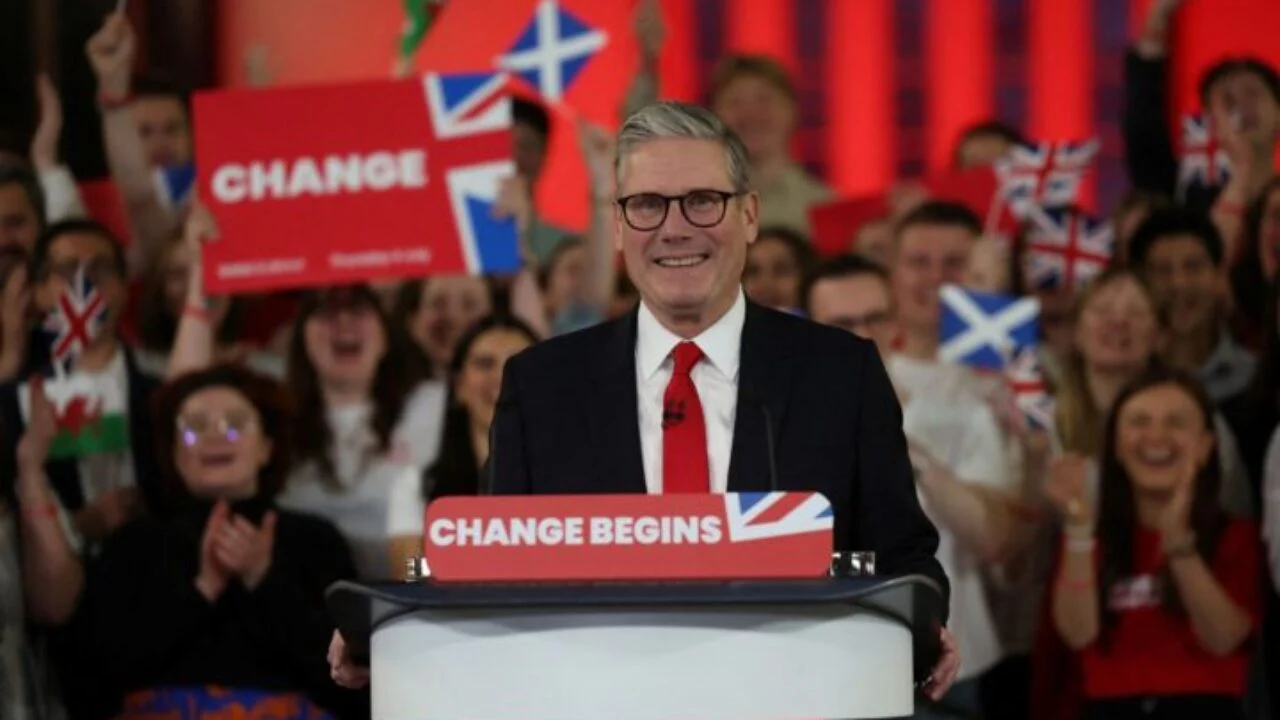
The United Kingdom’s general election of July 4 marks a turning point in the nation’s political land-
scape. It highlights the resilience of its democratic traditions. The peaceful transition of power from Rishi Sunak to Keir Starmer reflects the strength of Britain’s political institutions and the electorate’s ability to effect change.
Moreover, the landslide victory of the Labour Party signifies a potential shift in the country’s ideological trajectory, prompting a reevaluation of its political, economic, and social future. As the nation navigates this pivotal moment, the smoothness of this transition serves as a testament to the stability and adaptability of Britain’s democratic infrastructure.
One of the most striking aspects of the new cabinet is the representation of women, with 11 out of 19 cabinet members being female. This stands in contrast to the situation in Nigeria, where women are severely underrepresented in government, particularly in the Northern states where female participation in politics is almost non-existent. The success of these women in the British political arena serves as a quintessential example for Nigeria, where patriarchy still holds sway and gender equality in politics remains a distant dream.
Eight Nigerian-Britons emerged victorious in the parliamentary elections, garnering adulation from Nigerians both at home and abroad. Their success highlights the importance of merit-based selection in politics, as each Member of Parliament (MP) won their seat on the basis of their personal qualifications and achievements. Unlike in Nigeria, where political appointments are often influenced by money, party leaders, and other extraneous factors, the British system values the power of the voter and respects the rights of every citizen to participate in the democratic process.
The diverse backgrounds and professional expertise of the Nigerian-British MPs further underscore the importance of competence and performance in politics. These individuals, ranging from engineers to lawyers, have earned their seats through hard work and dedication, rather than through political connections or nepotism. Their success should serve as a wake-up call to the Nigerian political system, where the average age of politicians is over 60 and where professional qualifications are often overshadowed by tribal and religious affiliations.
A veteran politician and one of the leading Nigerian-British MPs, Kemi Badenoch, exemplifies the success that can be achieved through hard work and dedication. Despite the challenges faced by her party in the recent election, Badenoch was re-elected on the basis of her qualifications and track record in office. Her appointment as Secretary of State for the Department for Business and Trade is a testament to her capabilities and leadership skills.
The current political climate in Nigeria stands in sharp contrast to the achievements of Nigerian-British professionals in the political sphere. Through their perseverance, commitment, and professional knowledge, Taiwo Owatemi, Chi Onwurah, Kate Osamor, Bayo Alaba, Josh Babarinde, Florence Eshalomi, Helen Grant, and Kemi Badenoch have all been elected to the legislature. This is in contradistinction to the state of affairs in Nigeria, where many politicians are viewed as “professional politicians” who lack distinguishable credentials or sources of income.
Nigeria’s electoral system is radically different from that of Britain, where candidates accept the results of the poll without filing lawsuits. Britain’s electoral procedure is also transparent and effective. But in Nigeria, courts are routinely called upon to resolve electoral disputes since elections are frequently tainted by violence, corruption, and legal problems. Nigeria’s electoral process is not credible due to the absence of intra-party democracy and the involvement of cronies and godfathers.
While the political achievements of the elected Nigerians are commendable, they also serve as a sobering reminder of the weaknesses in our democratic system. After all, competence and performance ought to be the main determinants of electoral success, not religious and tribal affinities as they frequently are in Nigeria. The achievements of these Nigerian-Britons should compel a reassessment of Nigeria’s political environment, highlighting the necessity of a more efficient and responsible democratic system.
Unfortunately, the high rate of litigation in Nigeria’s elections threatens the country’s democratic process, creating tension and uncertainty from pre-election disputes to post-election challenges. This undermines voter choices and trust in the electoral system, raising concerns about the judiciary’s independence. Electoral reforms promoting transparency, accountability, and timely dispute resolution outside the courts are needed to strengthen democracy in Nigeria.
Our nation’s democracy is at a critical point and must evolve to survive. We need to shift away from costly campaigns and prioritise electoral integrity by safeguarding voter rights and promoting transparency. By addressing key national issues, Nigerian politics can become more sustainable and effective. These reforms are essential for our nation to progress towards a more inclusive and representative government.
Nigeria and other countries grappling with democratic government ought to take note of the Nigerian-British MPs’ accomplishments. Political leaders must be held responsible for their acts, and citizenship entails both rights and obligations. To be a really democratic society, where the power of the vote is honoured and protected, a society should be based on competence, performance, and transparency. Then and only then, regardless of origin or background, can we aspire to create a brighter future for every citizen.
-
Business3 days ago
Town Planners Lament Shortage Of Professionals
-
Niger Delta3 days ago
Edo Guber Poll: Ganduje Inaugurates Campaign Council …Vows To Reclaim State For APC
-

 Business21 hours ago
Business21 hours agoOver $1.5bn Spent To Protect Nigeria’s Oil Installations -FG
-
Niger Delta20 hours ago
Gunmen Rob, Kill Businessman In Bayelsa
-
News3 days ago
We’ll Respond To Planned Protest Professionally, IGP Assures
-
Sports3 days ago
CEAPOLY To Include Sports In Curriculum – Rector
-
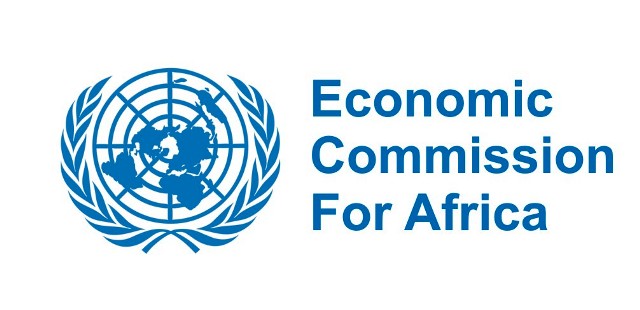
 News20 hours ago
News20 hours agoECA Advises African Countries On Rising Indebtedness
-
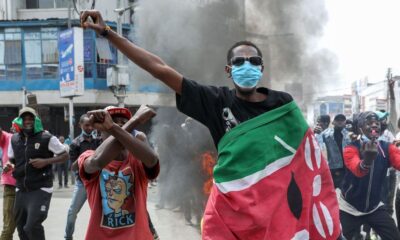
 Editorial19 hours ago
Editorial19 hours agoLearning From Kenya’s Protests

